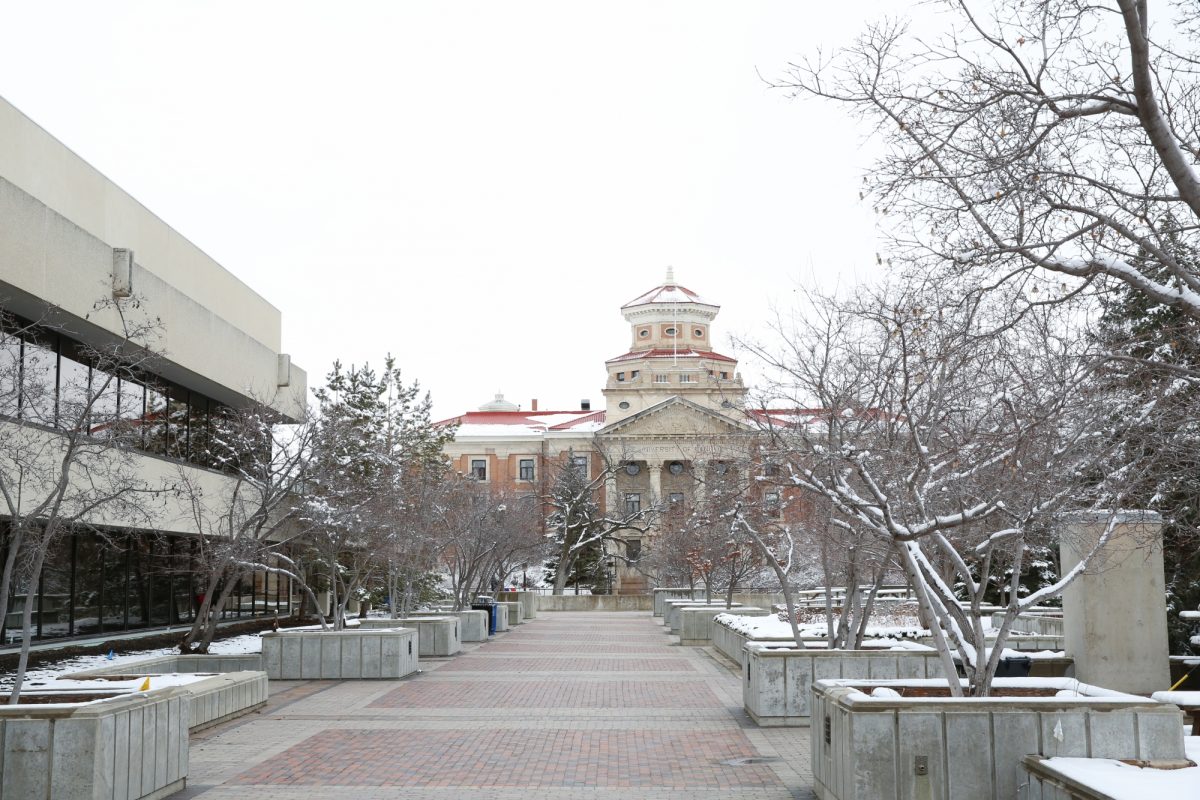
UM’s Administrators comment on priorities during COVID-19 outbreak
The UM community continues to work together to navigate COVID-19 and its impact on students, faculty and staff.
With an unprecedented pandemic comes challenges we’ve never faced before, says President and Vice-Chancellor David Barnard.
“So many people are responding by working hard, pushing themselves, to try and do what’s in the common good. It’s impressive. It’s not surprising because I know that’s what kind of community the university is. But it’s impressive to see it again in these circumstances,” says Barnard.
All executive members at the University of Manitoba have made it a top priority to help slow the spread of infection to the best of their ability and are following local, national and international protocols.
While prioritizing safety and being responsive to government guidance, a multitude of other factors come into play, including considerations for students needing to complete their programs, graduating students, new students enrolling in fall, researchers engaged in collaborative work, those on field placements, and the many visitors to campus.
“Protecting people needs to be the top priority—so, taking whatever actions we can to minimize the occurrence of the infection,” says Barnard. “We need to find ways to move forward, to the extent we can, and continue with the mission of the university while protecting our people.”
On students
Janice Ristock, provost and vice-president (academic)—who provides leadership in all matters relating to students and academic staff, from academic programs, to enrolment management, and long-range academic planning—says her priority today is ensuring students are able to fulfill their current studies, while putting the well-being of the UM community first.
“We are working hard to ensure students are able to successfully complete the term in these extraordinarily challenging circumstances,” says Ristock. “I know all instructors, department heads and deans are committed to the success and well-being of our students and have been putting in long hours to this end. We are a strong community, and together we will get through this.”
Dr. Catherine Cook, vice-president (Indigenous), says it’s important for international and Indigenous students who are in Winnipeg on their own to have a supportive network while practicing physical, social distancing and connecting with family back home.
“I’m sure they’re feeling very alone. It’s making sure they have the kind of social contact that they need to maintain a healthy outlook, because this will go for a while,” says Cook, who is also mindful about the potential impact of COVID-19 on Indigenous communities.
While our public health branch is providing important guidance on precautions to take, it can be difficult to adhere to in some First Nations and Métis communities living in conditions such as overcrowded housing, she says. For years she practiced as a family physician in remote northern nursing stations.
“I think there has to be extreme vigilance in terms of who’s coming in and who’s leaving the communities,” says Cook, who is limiting family visits to her own home as her husband has a chronic illness.
On researchers
Top of mind for Digvir Jayas, vice-president (research and international), is the impact on research. While no new research projects should begin at this time, ongoing projects can continue if researchers take precautions such as social distancing, regular handwashing and using hand sanitizers.
“But if the infections continue to grow then we may have to make a decision to stop all research so I have advised all the researchers to have a plan in place,” says Jayas, noting some research testing requires animals so maintaining a continuity of care during a stoppage would also be paramount.
It will be researchers who ultimately fuel a better understanding of COVID-19, and strategies to combat the infection in the future, says Jayas. Among them are two UM faculty members with research projects focusing on public health responses in Indigenous populations.
Jayas thinks about the risks all Manitobans face, including his own family, which includes a son who’s in his third year of medical school.
“It’s possible that he’s in that setting and then he could be infected and bring that home,” he says, recognizing the need for all of us to help flatten the infection curve.
On finding paths forward
John Kearsey, vice-president (external), whose team was about to wrap up the university’s $500-million Front and Centre campaign and host a variety of events celebrating students and staff, says priorities quickly shifted.
“Bottom line, let’s keep everyone healthy and safe, especially our most vulnerable,” he says.
The university has never before experienced a communication challenge like this.
“External information changes in 30-minute increments. Gathering information, providing answers to frequently asked questions, and trying to ensure accurate, timely information reaches our students, faculty and staff is crucial during this unprecedented time,” says Kearsey. “I recognize there is incredible stress and anxiety right now and I believe regular, direct communications will help us through this so we’re working from that premise.”
For Lynn Zapshala-Kelln, vice-president (administration), coping with significant unknowns has become the new norm. She’s focused on supporting faculty, staff and students from an administrative perspective, trying to keep up morale when people are working so hard, and being mindful about how decisions affect others.
“We are amongst the most knowledgeable, creative, thoughtful, kind people,” says Zapshala-Kelln. “We are going to pull though this together and we’re going to learn from it and we will be in a better position in the future, having gone through this very difficult time.”






